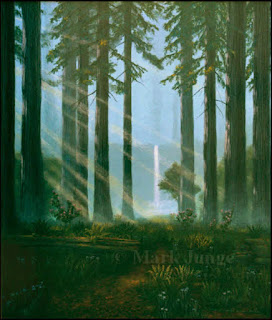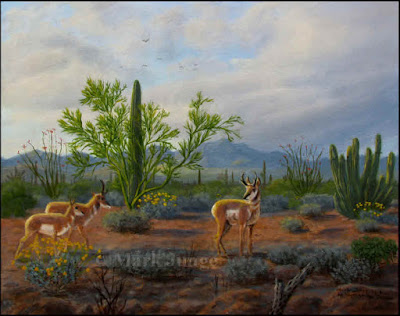As you may know, a "nocturne" is a work of art or music that is all about the night -- typically, night with a full moon.
It's amazing how magical nocturnes are! Provided a landscape feels like a safe place to be in, the darkness + moonlight casts a spell as nothing else can.
I've painted less than a handful of nocturnes only because they can be too dark for people to hang on their walls, especially if rooms are not brightly lit during the evening hours. But I suspect I may do more of them -- possibly scenes that are not desert. I absolutely love the look the full moon gives to the land, as it has been the last few nights during the "supermoon." (Full moon was last night, but it's still lookin' pretty darned wonderful out there!)
 |
| Mojave Nocturne |
What's amazing to me are the color photos (35mm slides) I've taken by moonlight. Given enough exposure, the pictures look just like daylight pix! The relative values, darks and lights in a moonlight scene are the same as they are in daylight -- things are simply darker.
AND -- just a couple of other differences:
1. The brightest stars show up in the nighttime photos;
2. Shadows have blurry edges. The moon moves enough during the time exposures to blur things.
Maybe someday soon!! More nocturnes!
 | ||||
| Moonlit Desert |










